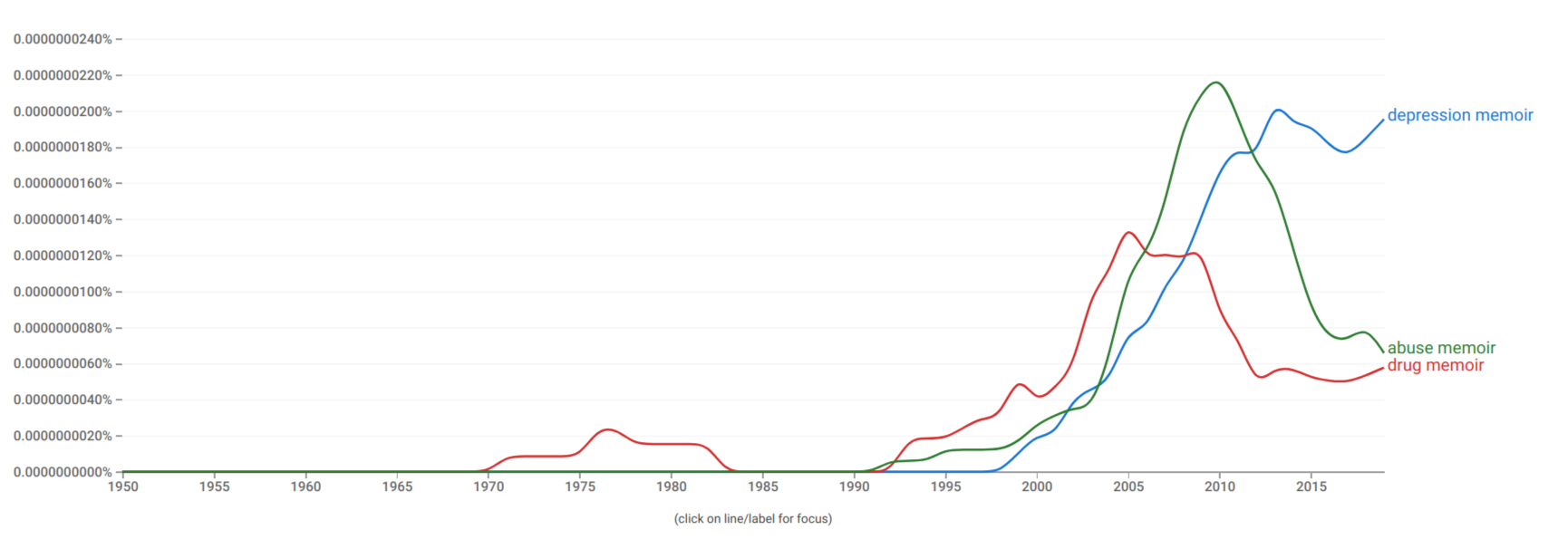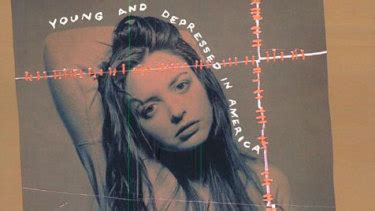The Rise of the American Memoir
James McAdams| June 10, 2020
As I’ve mentioned, the major formal “flex” in The Florida Shuffle consists of writing a “fake memoir,” i.e. the bulk of the novel is told from the POV of an imprisoned James McAdams, who has been convicted of various crimes and misdemeanors involving manslaughter, pharmaceutical theft, and online fraud in the post-Silk Road marketplace. The north star for this approach is Nabokov’s Lolita; a minor constellation is David Foster Wallace’s even more ambitious “fake memoir” The Pale King, in which he critiques what he sees as the narcissism of the modern memoir, noting the rise of the American memoir in the 90s, the same decade that gave us reality TV and the first inchoate blogs and web-boards that lead to the anarchist worlds of 4chan and Reddit.

Since its publication in 2011, The Pale King has received sustained attention from Wallace scholars recognizing and assessing a variety of themes explored in the novel. Among these interventions, the most common consist of the novel’s emphasis on boredom, attention/mindfulness, institutional philosophies, politics, and trauma. However, the sophisticated framing apparatus, whereby Wallace argues in his “Author’s Foreword” that TPK is not a novel but rather a “non-fiction memoir” or “vocational memoir,” has received scant attention.
There are multiple “snarks,” it seems, on the memoir genre contained in the various “Author here! interpolations.” On page 81, Wallace observes that “the author’s average advance was almost 2.5 times more for a memoir than a work of fiction,” suggesting a memoirist’s commercial, not literary, motivation. In a later interpolation, Wallace casts doubt on the reality of memoirs, claiming that memory doesn’t work in the way implied by memoirs, and concluding that memoirs are, therefore, much more fiction, or lies, than their reputation suggests. As he explains in footnote #3 on page 257, “I’m not going to be one of those memoirists who pretend to remember every last fact and thing in photorealistic detail. The human mind doesn’t work that way.”
Without reading into Wallace’s romantic life, which is of no interest to me, it is perhaps revealing that his philosophical ruminations on memoirs recall his relationships with two of the most heralded and productive memoirists of the last few decades—Elizabeth Wurtzel and Mary Karr. One can argue (I actually have in my dissertation) that Wurtzel’s Prozac Nation gave birth to the mental illness memoir-craze upon its publication in 1990, while the same can be said for Karr’s remarkable The Liar’s Club, which likewise in the 90s revealed the fire-tinged demimonde of sexual abuse and family dysfunctionality. Considering this personal connection, I believe that the memoir-artifice of TPK conceals a sustained attack on the popularity and mnemonic feasibility of memoirs, and suggest that, had he finished the novel, Wallace’s dark suspicions regarding the literary value of the modern memoir genre would have been more emphatic and striking to both readers and scholars alike.

Unlike Wallace my problem with memoirs isn’t that they are untrustworthy in terms of memory, but they seem to revel in “people behaving badly.” The shock-value, the Schadenfreude, the humble-bragging (this is how much cocaine I did!!! This is how much people I’ve slept with!!!) is what I hope to critique in my novel, without it becoming boring or a slogfest for people who don’t really care. Plus, as I detail in a second blog this week, the memoir from prison allows me to reflect on and imagine changes in prison ecosystems, architecture, and really cool innovations to make prison less a place of punishment than one of an alternate reality, not necessarily devoid of small plots of orange plants and schedules and work that instill self-esteem and love across cells.


